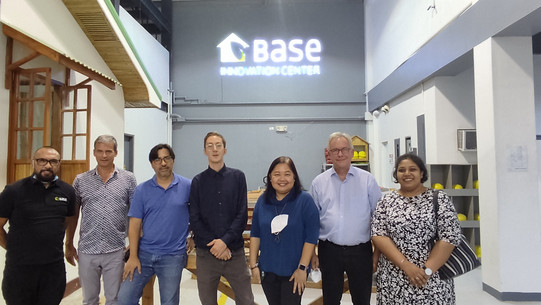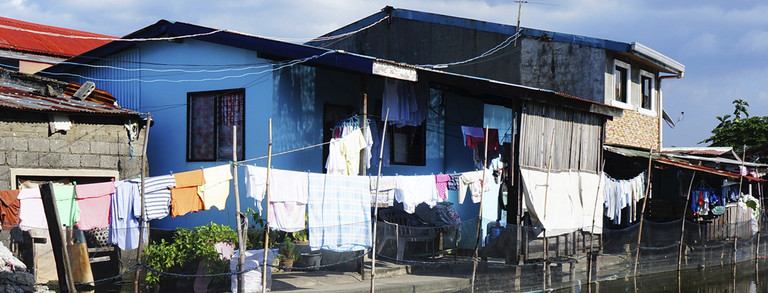LIRLAP workshops and fieldwork in Bangkok, Hanoi and Manila
The German LIRLAP team with participants from the Institute for Spatial Planning (IRPUD) with Prof. Dr. Stefan Greiving, Dr. Juan Du and Dr. Wolfgang Scholz, the Institute for Spatial Planning and Regional Planning of the University of Stuttgart (Hannes Lauer) and the Research Group Human-Environment Relations of the Institute of Geography of the Ludwig-Maximilians-University of Munich (Antje Katschner) as well as Prof. Dr. Mathias Kaiser (kaiseringeniere) , spent two weeks in Southeast Asia to identify possible case studies in Bangkok and Hanoi, to plan further work steps with local partners and to conduct target group interviews in selected settlements.
LIRLAP workshops and fieldwork in Bangkok
The first stop was the Future Research Unit and Policy of Thammasat University (UFP) in Bangkok from 22 to 24 September 2022. On 22 September, UFP organised an expert forum to discuss and share knowledge with participants from research institutes and agencies in the field of urban development and housing on the impacts of climate change and strategies to mitigate them in the future. Other topics included disaster risk management and the development of low-income housing suitable for the Thai context. Keynote speakers were Ass. Prof. Dr. Tawida Kamonwetch, Deputy Governor of Bangkok, Dr. Khun Thanat Natthapornphong, Deputy Director of the Community Organisation Development Institute (CODI), and Dr. Sitthiporn Charnnin, Director of the Space Technology Research Center Office of Space Technology Development and Geographic Information.
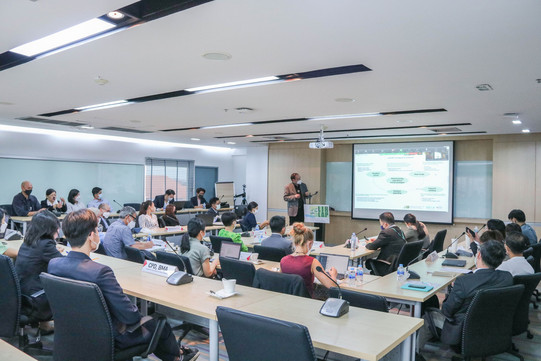
Over the next two days, UFP, the teams from Germany together with Dr Khun Thanat Natthapornphong (CODI) and teams of architects and engineers explored four settlements in Bangkok where CODI is implementing resilience improvement projects: Laksi Community 99, Pracha Ruamchai Community 2, Men's Khlong Bang Bua Community and Pathum Thani Community in Pathum Thani province. According to CODI, there are currently 98 low-income communities in floodplains in Bangkok and surrounding provinces with 10,825 buildings and 36,841 people. This number could increase due to climate change risks. The aim was to learn more about the history and development of the settlements in discussions with residents' representatives and local cooperatives, to visit the newly built houses and to study the construction measures carried out and their construction techniques. Other focal points were the financing model for housing construction and how the local government's support for the project was structured.
During this field study, the differences between the original condition of the buildings and the improvement of the quality of life for the population after the new construction measures, as well as the efficiency of drainage and wastewater treatment, became clear. LIRLAP will therefore analyse and evaluate upgrading approaches in Manila (Philippines), Hanoi (Vietnam) and Bangkok (Thailand) in a joint research process to increase the resilience of planning measures.
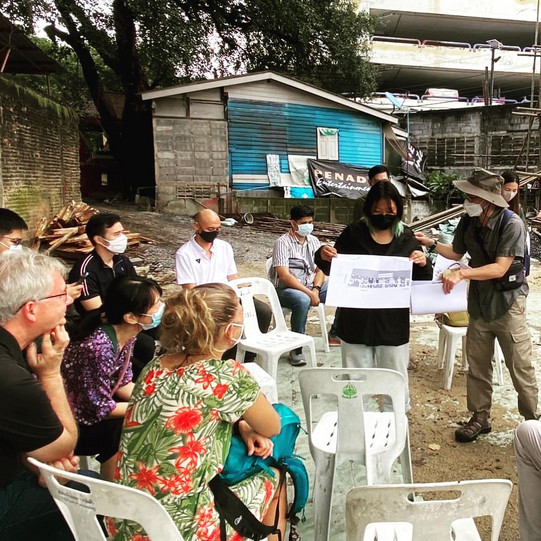
LIRLAP workshops and fieldwork in Hanoi
From 26 to 28 September, the LIRLAP team discussed current urbanisation trends with its partner from the Vietnamese National University of Agriculture (VNUA) in Hanoi. The first day started with input lectures from local experts: "Characteristics of urbanisation in Hanoi: changes in landscape patterns through space and time" by Dr. Nong Huu Duong and "Socio-demographic aspects of urbanisation and urban development in HCMC" by Assoc. Prof. Le Thanh Sang. The second part of the first day focused on an expert consultation with a scenario validation dialogue to discuss the narratives of socio-economic development pathways (SSP) for urbanisation in Vietnam.
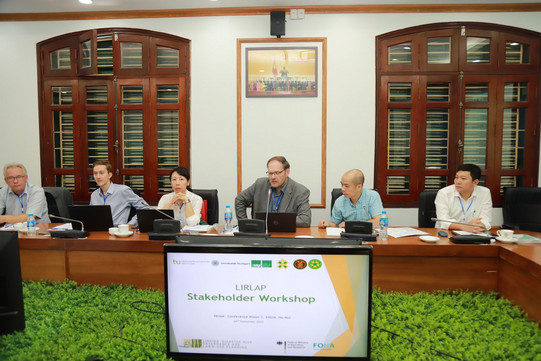
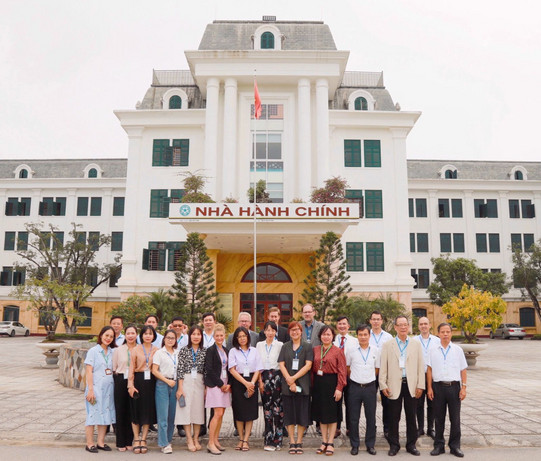
A third step involved the selection of case studies: settlements in floodplains or highly vulnerable (informal) settlements that either need to be upgraded or potentially relocated. LIRLAP also learned about current upgrading activities on the ground and climate resilience measures in Vietnam. Days two and three focused on field studies and discussions with community representatives and residents, as well as visits to informal building upgrades in social housing (KTT Thành Công in the city centre) and flood-affected riverside residential areas (Phường Phúc Xá and Long Bien) in Hanoi.
LIRLAP workshops and fieldwork in Manila
From 30 September to 5 October, the LIRLAP team continued its research in Manila. On Friday 30 September, the LIRLAP LMU team conducted its scenario workshop on three national narratives and a discussion on the driving forces in the form of scenarios, including a World Café. The weekend was reserved for field research activities in informal settlements and resettlement areas with transect walks, community meetings and focus group discussions in Tumana, Kasiglahan Village, Estero De San Miguel and Isla Puting Bato, and St Therese.
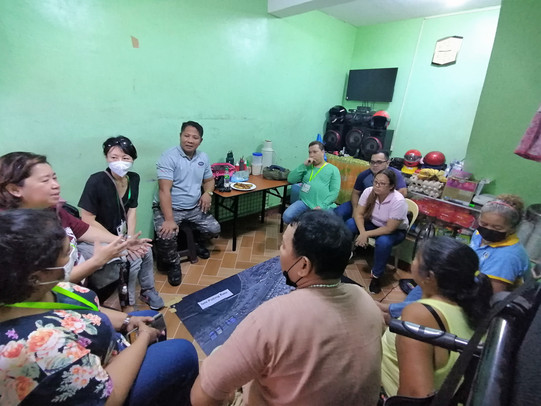
On 3 October, the entire LIRLAP team, including partners from Bangkok (UFP) and Hanoi (VNUA), held its strategy workshop at the School of Urban and Regional Planning, University of the Philippines Diliman (UP SURP) to discuss the status quo of each work package, assess the outcomes of the work packages and plan future activities for the period 2023-2025. After the outbreak of the pandemic, it was the first time that all members could be present at a workshop.
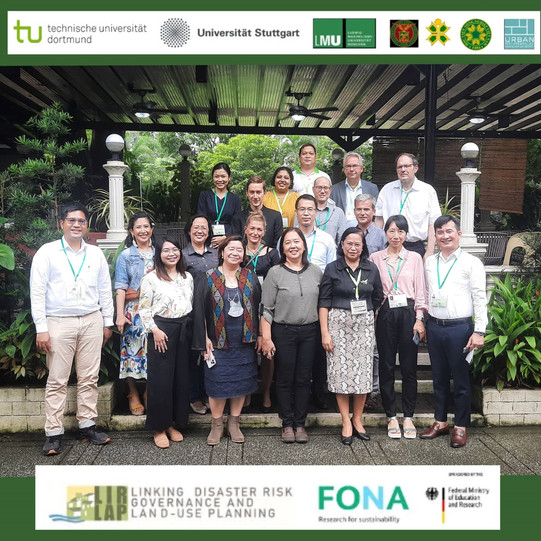
Productive and insightful discussions were held on strengthening the resilience of vulnerable settlements and LIRLAP is confident to take these forward and implement them. Another important topic was exploring options for mainstreaming enhancement and retreat strategies into national and local policy decisions. In the following two days, the main findings of the field analyses of WP 2 (upgrading of informal settlements) and WP 3 (resilient retreat) from March to June 2022 were presented and discussed with community representatives to triangulate and validate the findings. The LIRLAP team members also discussed with experts about the current housing policies, upgrading projects and discussed with Base Bahay Foundation, which is supported by Hilti Foundation, a possible future collaboration in implementing resilient upgrading and resettlement projects.
